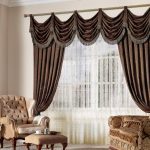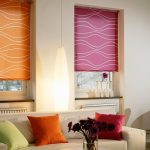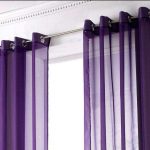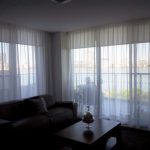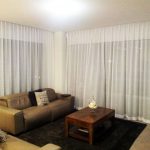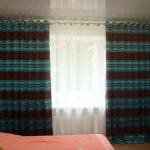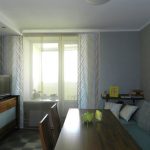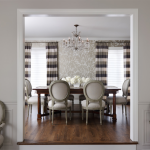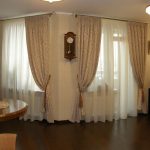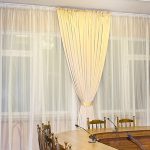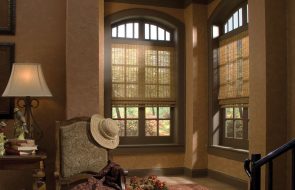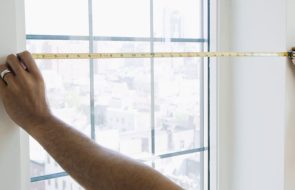Once the renovation is complete, they usually move on to one of the most interesting tasks – window decoration. Interior textile departments are full of offers, but before buying it is important to have at least a general idea of what how much fabric do you need for curtains. Many prefer to go to a salon or studio, but sewing will cost more than the material. The style is sometimes imposed according to their own standards, and not according to the client's request. For those who have sewing experience, making it yourself will be much more economical.
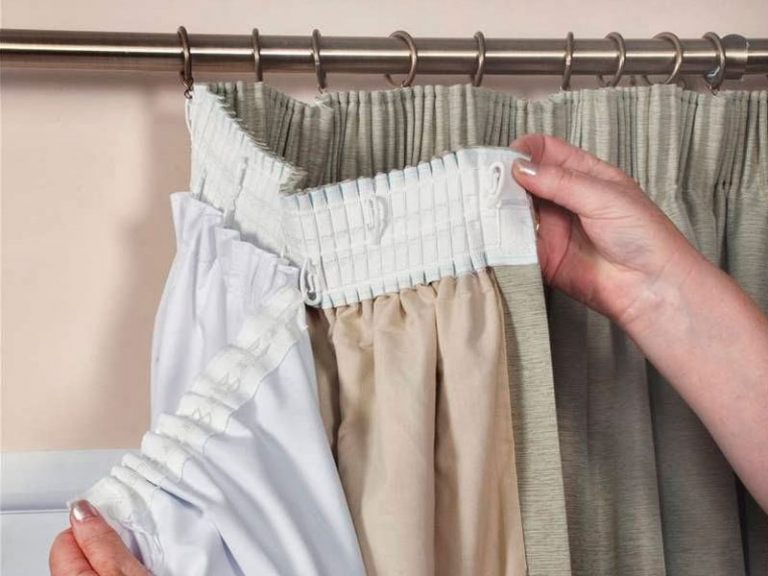
Content
- Where to start calculating when choosing window decoration with curtains
- Curtain style and fabric consumption
- What is needed for accurate measurements
- How to calculate the width correctly: what is taken into account in the material consumption for curtains
- Pleated Curtains and Gathering Ratio: What is it?
- How to correctly calculate the length of a window curtain: important recommendations and examples
- How to calculate the width of a curtain: recommendations from experts
- Practical examples of calculations
- VIDEO: How to determine the size of curtains.
- 50 stylish curtain options for your home and apartment:
Where to start calculating when choosing window decoration with curtains
For those who have never made window decorations, it seems that there is nothing easier than taking measurements curtains. The height to the cornice plus the width of the window - and all the measurements. In reality, everything is much more complicated, you have to take into account many factors.
- The assembly coefficient of the panel (depends on the style and cut).
- The width of the roll minus the edges of the curtain fabric.
- Hem allowances.
- Allowance for free sag.
- Allowances for the fastening method.
- The direction of the pattern or texture of the material.
- Baguette extension beyond the brackets.
- Additional cost for matching two curtains with a large pattern.
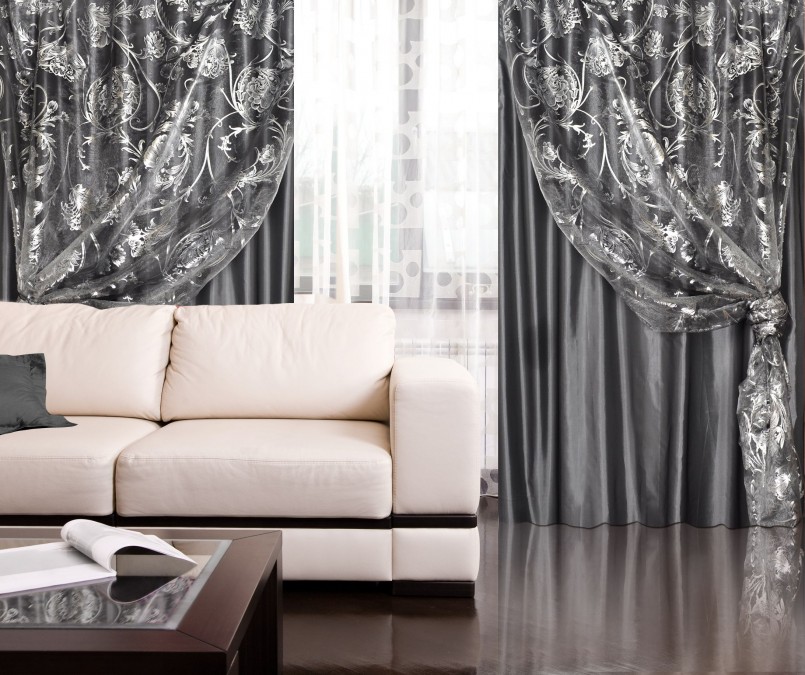
All calculations start with the style of window decoration – there is no point in saving on width of curtain fabric and the beauty of freely falling folds. It is also recommended to focus on the roll format and its relationship with the borders of the curtains. In most cases, a curtain on the entire wall looks much better.
The location of the battery in the window sill is also taken into account. The choice of style and length often depends on their aesthetics and dimensions:
- Short curtains in combination with long curtains;
- Curtain to the windowsill;
- Long curtain;
- Multilayered window decoration with complex cut.
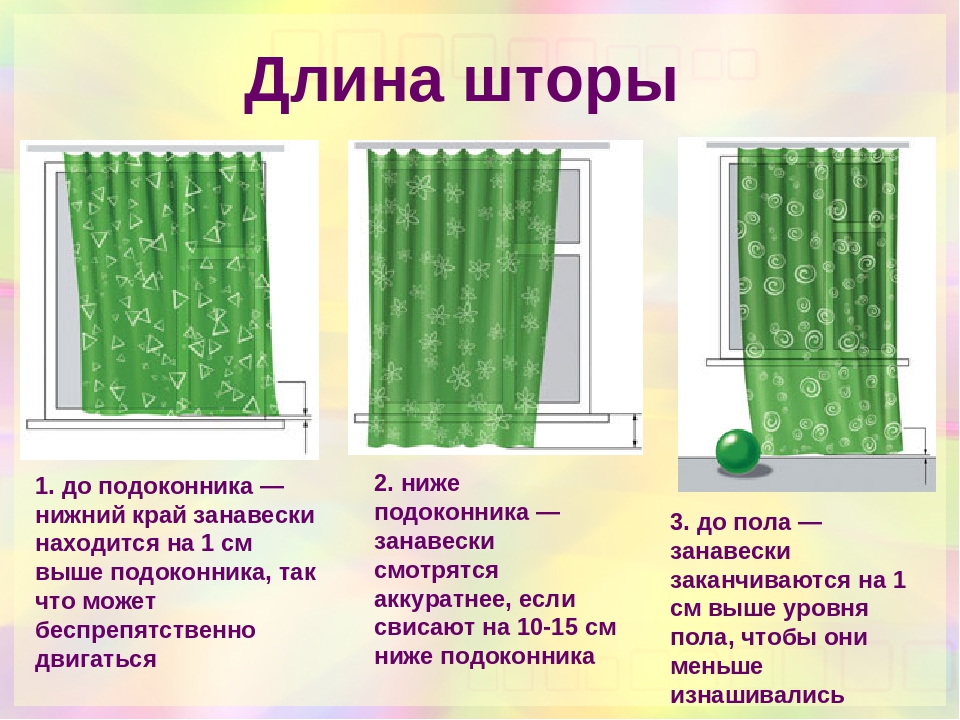
Only after realistically assessing the format of the window space covered by the curtains, can you begin measuring and sewing the product yourself. Also, designers recommend taking a small reserve, at least half a meter. There may be defects inside the roll or errors in calculations.
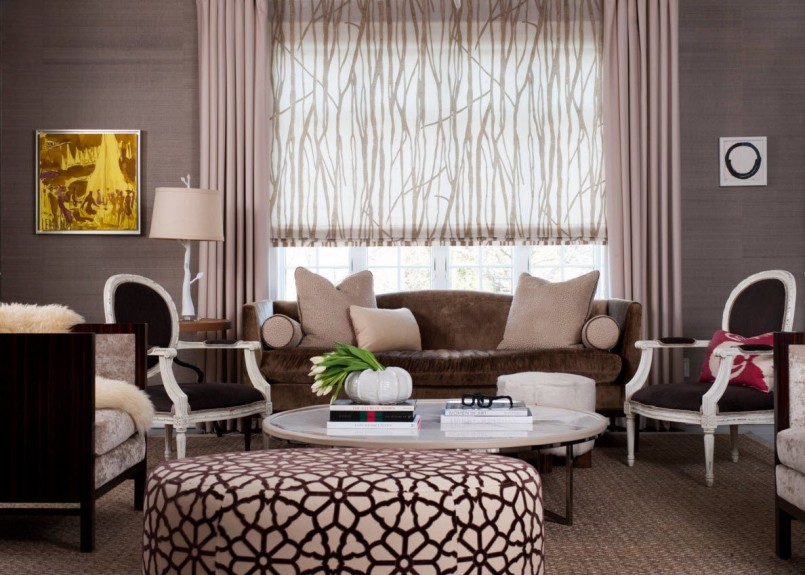
Curtain style and fabric consumption
The very name "curtain" (from the French store) means "window fabric drapery". Each era had its own style, which is confirmed by the paintings of artists. Initially, fabric (skins, fur) was used to curtain the window for insulation and regulation of the flow of light into the room. Over time, certain types were formed:
- Roman;
- Austrian;
- English;
- French;
- Italian.
It is worth clarifying that not all of them are directly related to the country of origin. Rather, this is a conditional design classification. Each variety assumes its own type of cornice and assembly coefficient.
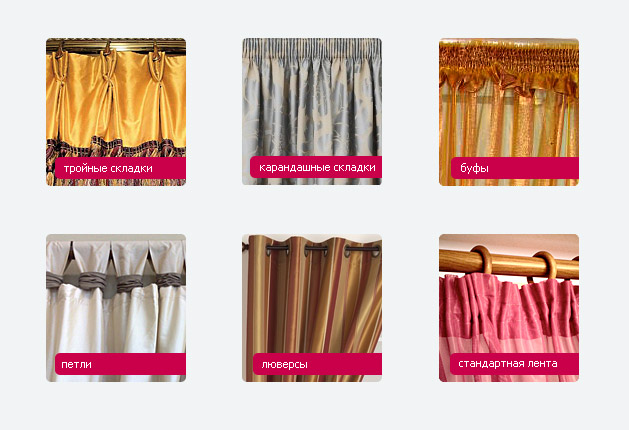
At calculations of fabric for curtains It is important to take into account that there are:
- multilayer and single options;
- with a contrasting fabric trim at the top or bottom;
- in assembly with a certain step (marquise) and in a drawstring on a tape;
- with figured folds, ruffles, frills,
- with grabs and lambrequin;
- with fringe, tassels and other accessories;
- completely smooth - Japanese screen curtains, etc.
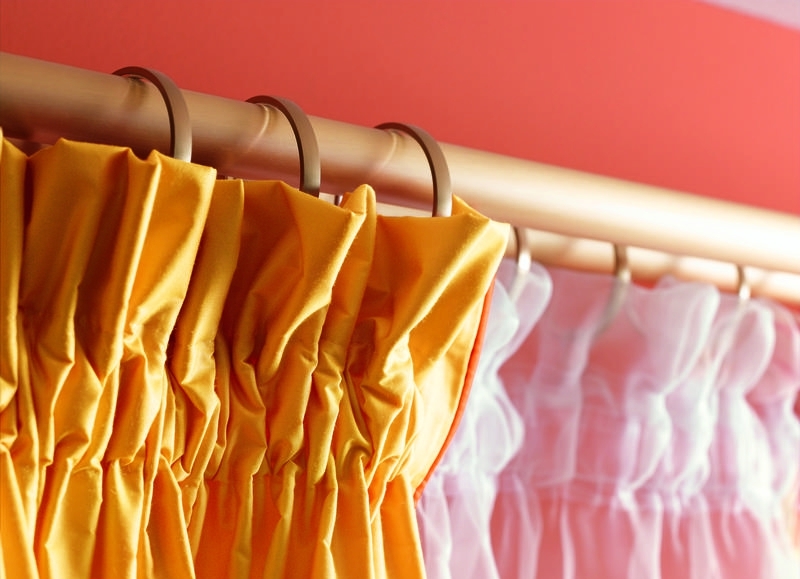
Some salons sew from their own material, others offer only tailoring. Estimated consumption and price You can discuss the work with a specialist by phone or fill out online form where all parameters are entered.
What is needed for accurate measurements
When taking measurements, many people make standard mistakes. It is important to eliminate errors, and the sheet should cover the baseboard or even touch the floor covering with its edge.
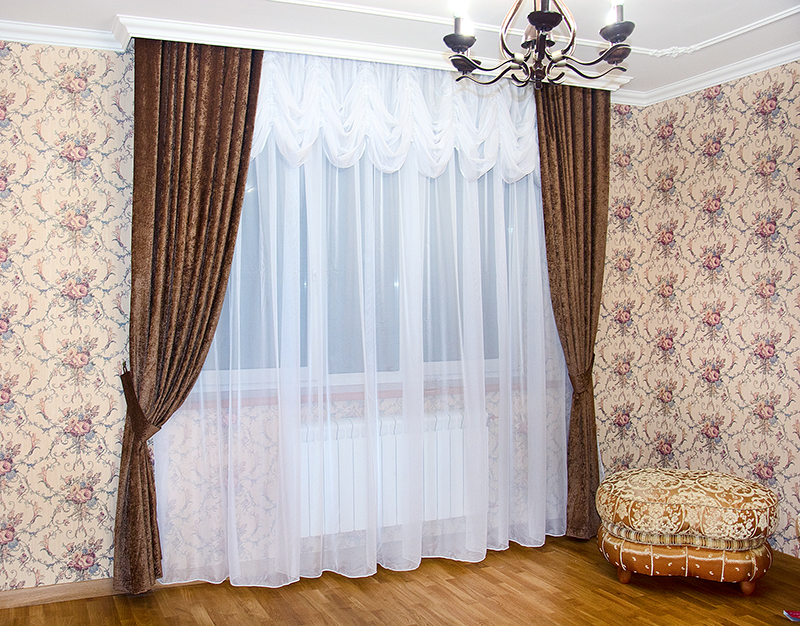
Even in panel houses, walls sometimes have curvature and deviations height in the corners. This requires precise measurements on both sides of the wall on which cornice. Difference usually does not exceed 1 cm, but there can be deviations of up to 5 cm, although this cannot be determined visually.
Advice: To determine the average length of the curtain, hang a weight on a rope (a plumb line) from the extreme point of the cornice. First on one side, then on the other, evaluating the difference along the control line of the intended curtain. Derive the arithmetic mean (add both measurements and divide in half).
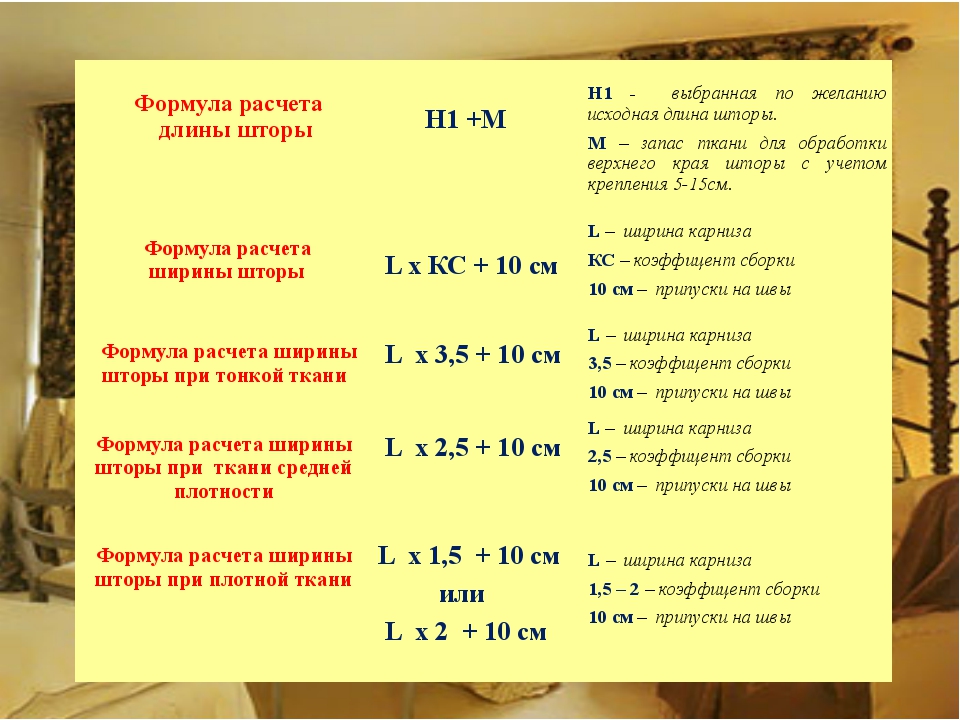
Accurate measurements make it difficult to make batteries and balcony door, some decorative elements in interior design. Plumb line is the best way to accurately determine the correct size products.
Another important point is what the measurements are taken with. You can use:
- with a regular school ruler, if there is nothing else at hand;
- centimeter tape (colloquially "centimeter");
- with a measuring tape.
A tape measure is preferred because it is the longest and does not twist or bend like a tape measure. It eliminates the need to add up several measurements into a total. footage, as with the use of rulers.
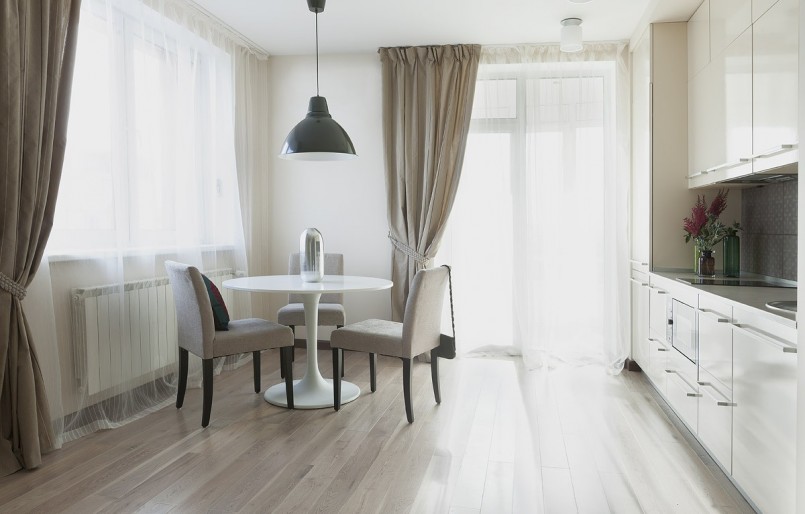
Important! Curvature or difference in wall height may be discovered after sewing the curtains. Removing and re-sewing them, leveling 1-2 cm, will be very difficult. It will take a lot of time and effort. It is much easier to re-cut the cornice, slightly moving one edge higher or lower.
There may also be errors in width. It is easier to eliminate them by using a universal building level with laser marking. Along the marked line, mark with a pencil and measure with a ruler the minimum width, to which allowances are added, a small reserve in width for the extension of the baguette rod, for lush folds, etc.
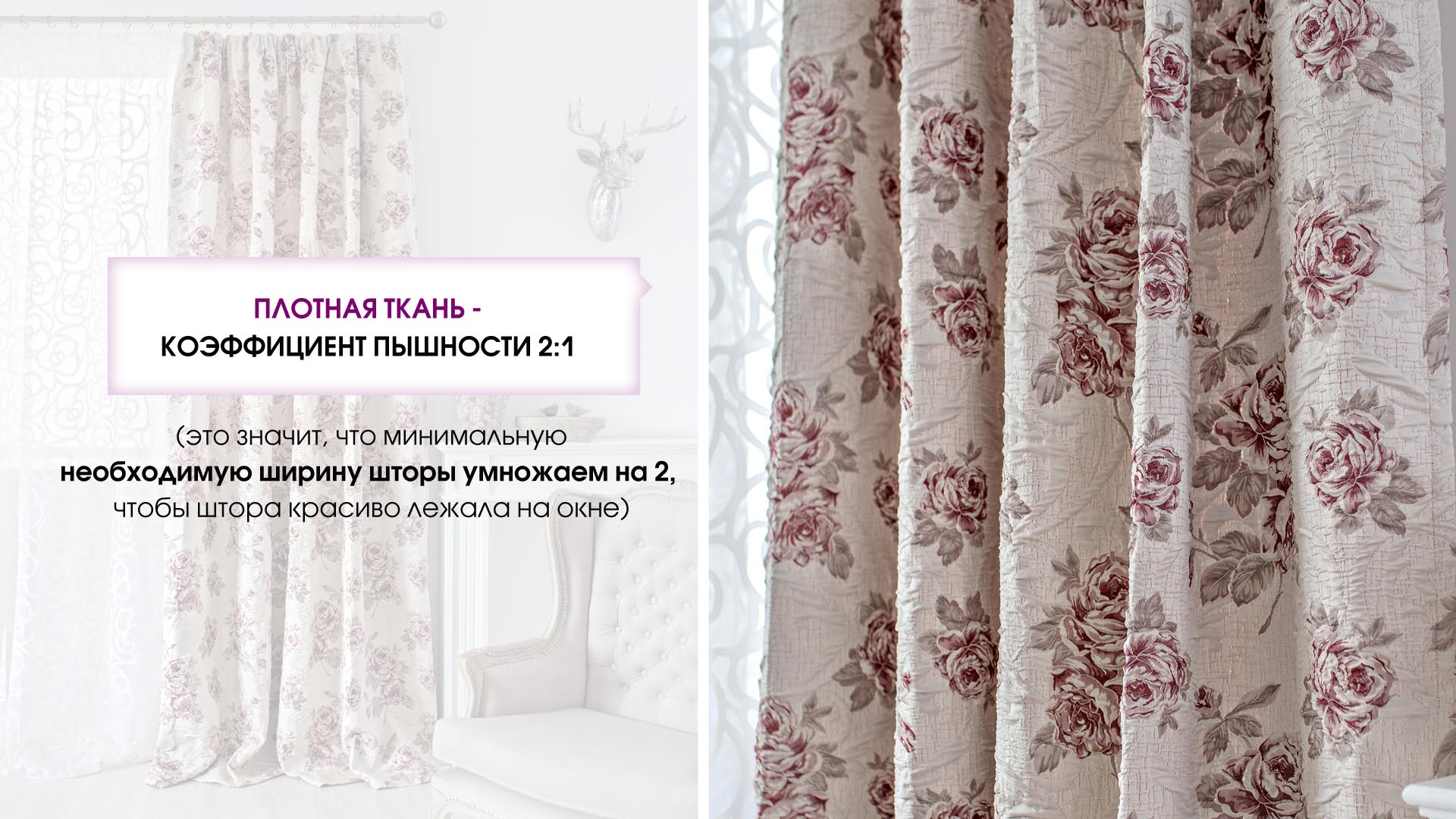
You will need a notebook for notes – it is easy to lose a piece of paper. Be sure to mark, for example, “measurements for the bedroom window” or “curtains for the living room” so as not to get confused. Don’t calculate in mind and keep the parameters in mind, especially when you have to put work aside for a while.
If you have to calculate consumption taking into account various coefficients, a calculator will come in handy. At the same time, it is easier to calculate the approximate cost of window decoration - a cornice plus fabric, threads and fittings.
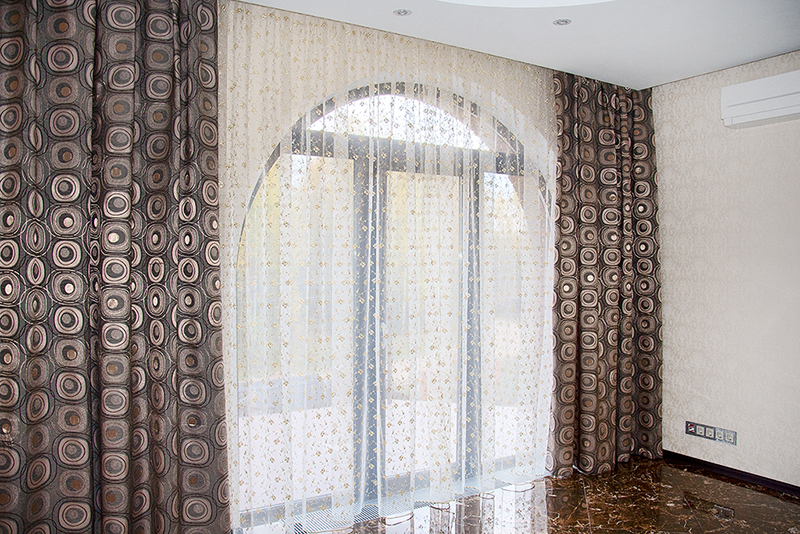
How to calculate the width correctly: what is taken into account in the material consumption for curtains
Before that how to calculate the width of curtains yourself, please clarify whether complex double or triple curtains are required.
- If If you want to hide the unsightly industrial landscape outside the high-rise window, a single curtain made of thick fabric is enough.
- The first floor or curious glances from the windows of the house on the other side - if necessary, the curtains should move easily along the cornice; complex folds are impractical.
- When the main function is to decorate a window in an interior design, it is better to choose stationary multi-layer curtains with beautiful folds and overhead details, the light should easily penetrate through the transparent curtain.
- Night curtains are needed for shift workers who have to fully rest in a darkened room during the day.
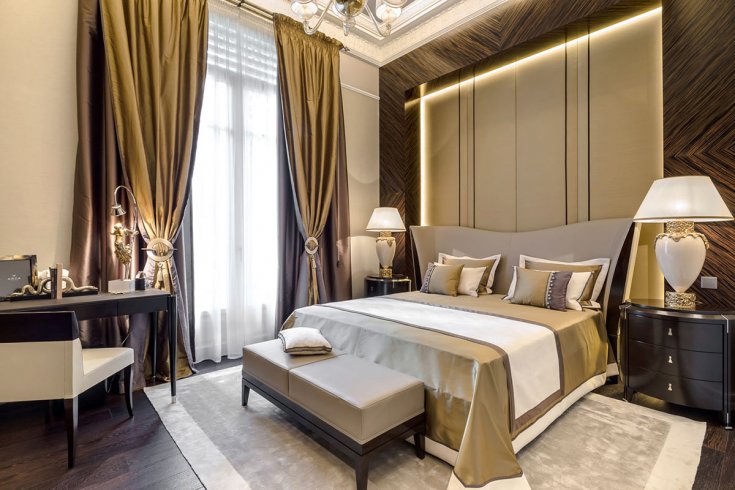
Attention! Most window veils are produced with a roll width of 2.8 - 3.2 m. In this case, the dense curtain fabric is usually located from top to bottom.
The curtain can be wide or narrow - there should usually be two of them, the standard is:
- 1.4m;
- 2.8m;
- 3.0m.
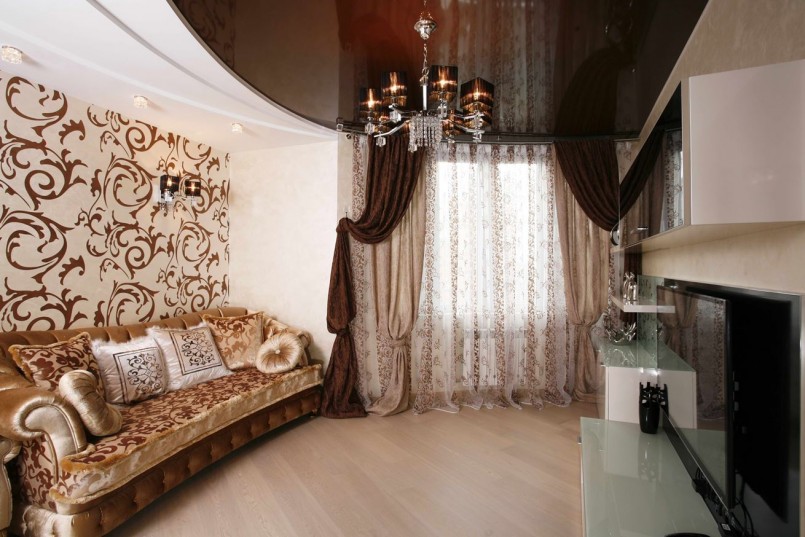
In this case, the footage for each material is calculated separately, taking into account allowances for seams and edge processing. But the basis for calculating the width remains the assembly coefficient.
Pleated Curtains and Gathering Ratio: What is it?
Before you start exercising calculation of curtains for a window, it is useful to look at the various styles in catalogs and illustrations. In most cases, the curtain is not simply stretched along the cornice, but gathered with soft folds, which gives it a special charm and luxury.
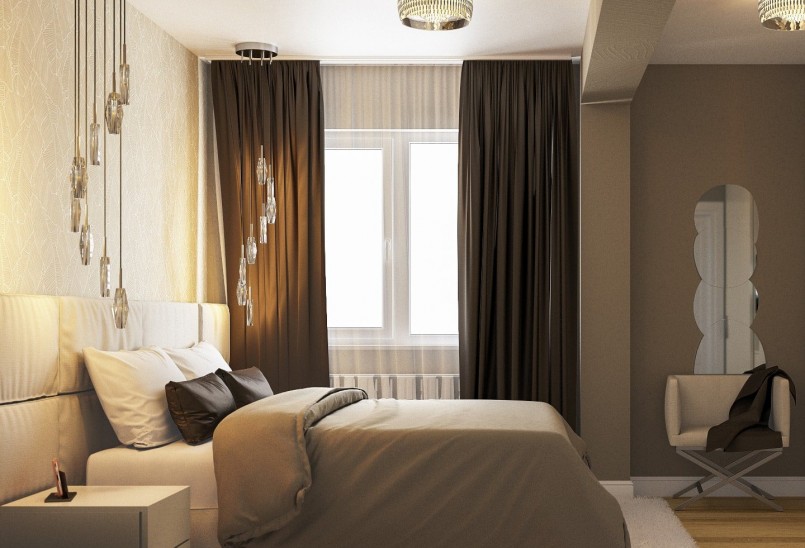
Attention! For lush gathers, curtain tulle is gathered not by length, but by width - the roll is unrolled along the ceiling, repeatedly making soft folds or gathering on a special tape.
Some types of curtains require a special type of fastening. A regular baguette with rings for loops is nailed approximately 5-12 cm above the window opening. The higher, the better it looks. Today, ceiling models of various formats are the most popular.
- Straight.
- Corner (for two windows in a corner room).
- Round shape (for bay windows).
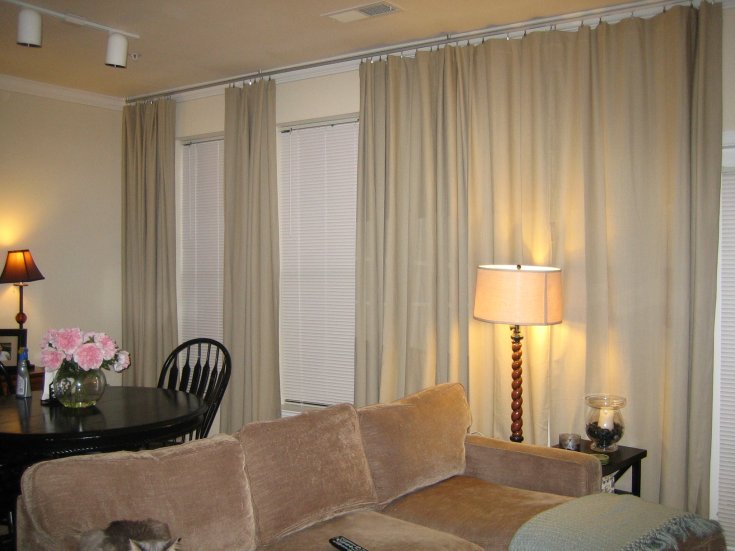
Many have seen curtains on rings - metal eyelets are put directly on a round rod, the design gives soft folds at equal intervals. Accordingly, these folds assume additional footage.
Good to know! Each style and type of fastening to the cornice has its own calculated assembly coefficient:
- flat fabric loops – multiply the width of the cornice by 1.5-2;
- curtains on a special tape for uniform assembly - multiply by 2;
- curtain with eyelets – coefficient 2;
- dense fine assembly – 2-2.5;
- puffs – coefficient 2.5;
- assemblies with sagging "marquise" - 3;
- box folds (triple folds) – 2-3, depending on frequency.
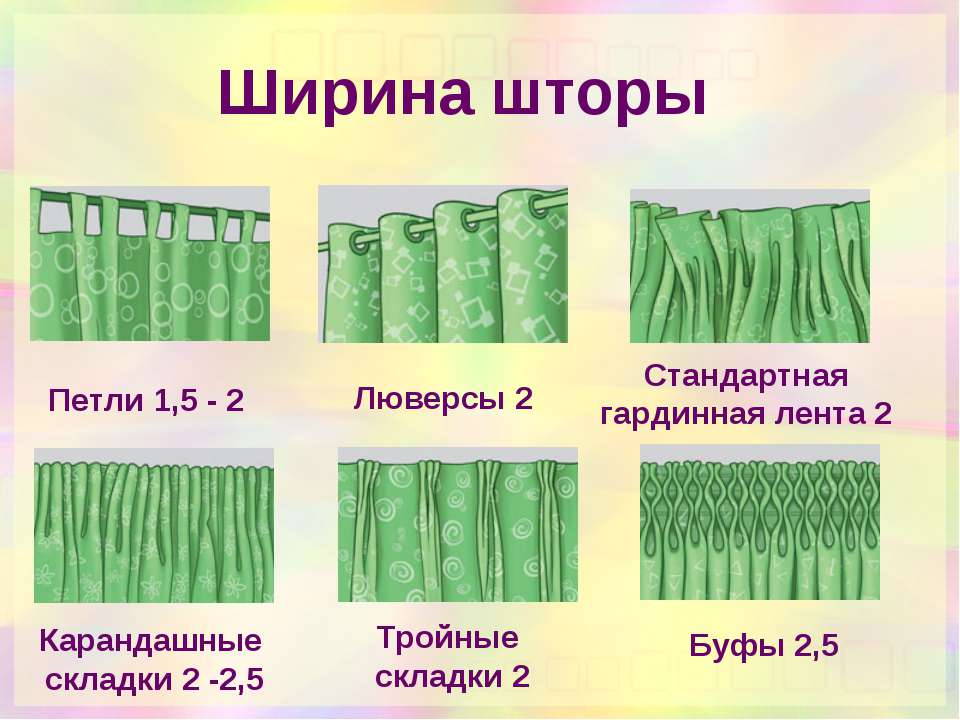
To do it right count footage, it is important to have basic measurements, taking into account all reserves and errors, multiply by KS – curtain assembly coefficient. It would be wrong take at a discount some material on the remainder of the roll, and then decide which style to choose. Then the choice will be limited, but saving makes sense when sewing small curtains for the kitchen or loggia.
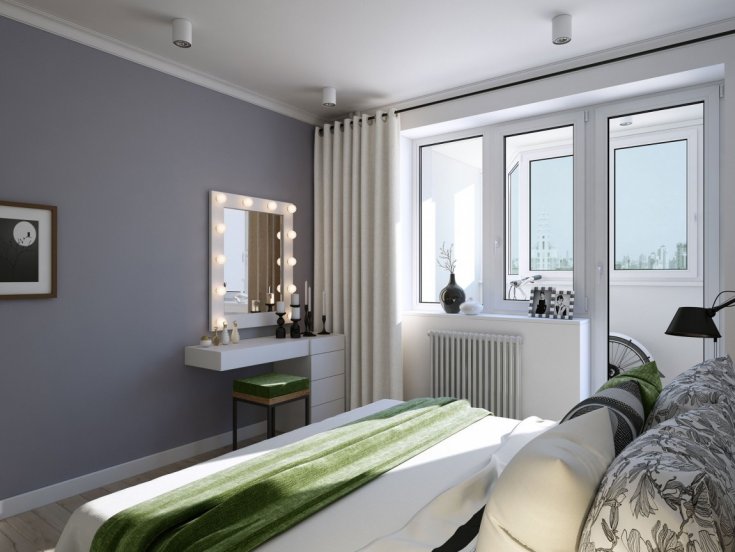
How to correctly calculate the length of a window curtain: important recommendations and examples
The most accurate consumption parameters will be obtained if there is a suitable cornice fixed above the window - all measurements with a tape measure from its edge. At a minimum, the ends of the baguette should protrude beyond the window opening by 15-20 cm. This is enough to move the curtains apart after the night and provide more daylight.
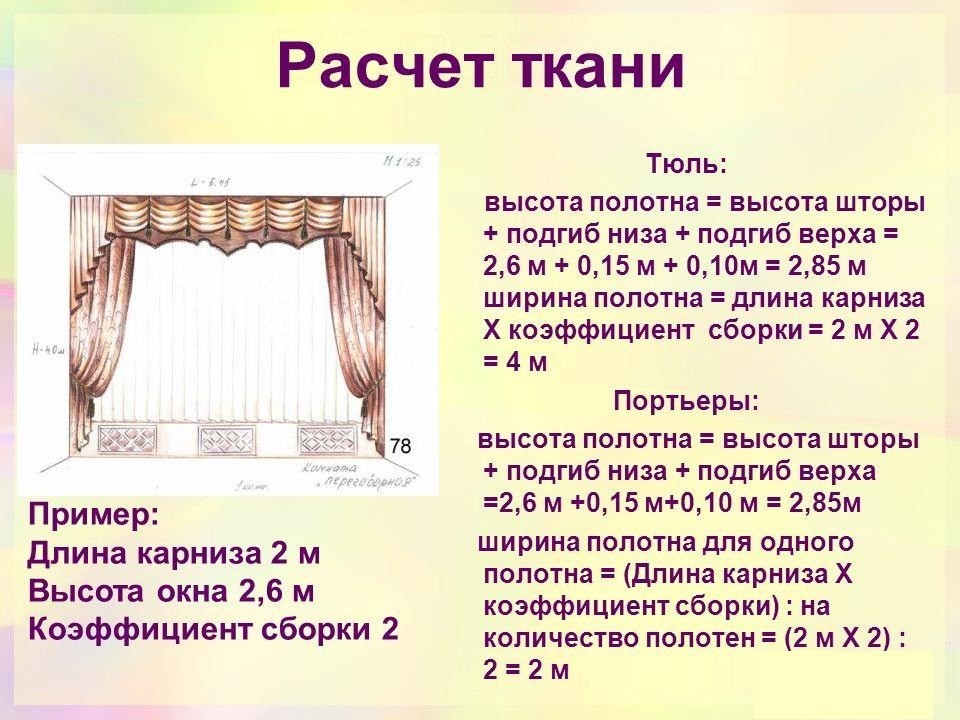
There is a lot to say about this, how to calculate fabric for curtains, but a long length is not needed for the kitchen or children's room. In the living room or bedroom, a long tulle is traditionally chosen, which can even lie on the floor.
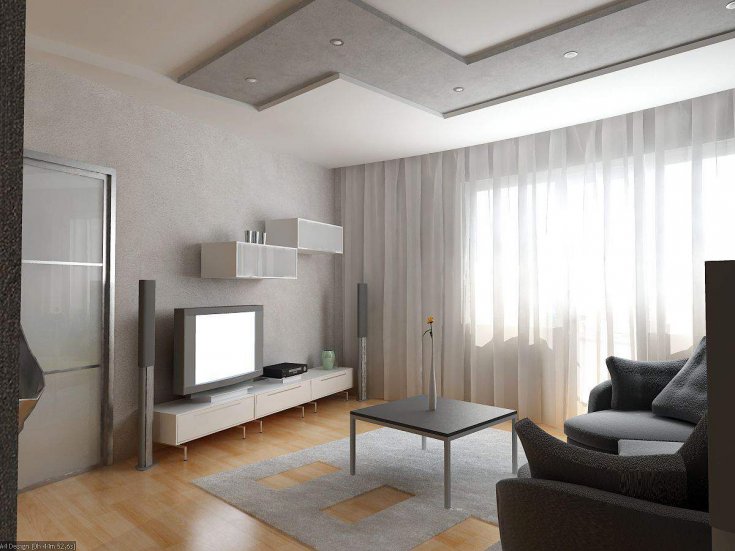
There is a general standard length:
- curtain to the windowsill (the bottom edge should not touch it);
- the edge below the window sill, to the level of the heating radiator, if it is a new aesthetic model with paint or a decorative shield;
- the fabric reaches the baseboard or slightly above the floor, is easy to curtain and does not get dirty when frequently drawn;
- complex romantic cut with grabs and drapes, the edges lie softly on the carpet or lacquered polymer (ideal order is necessary, the fabric is prudently raised onto the windowsill during cleaning).
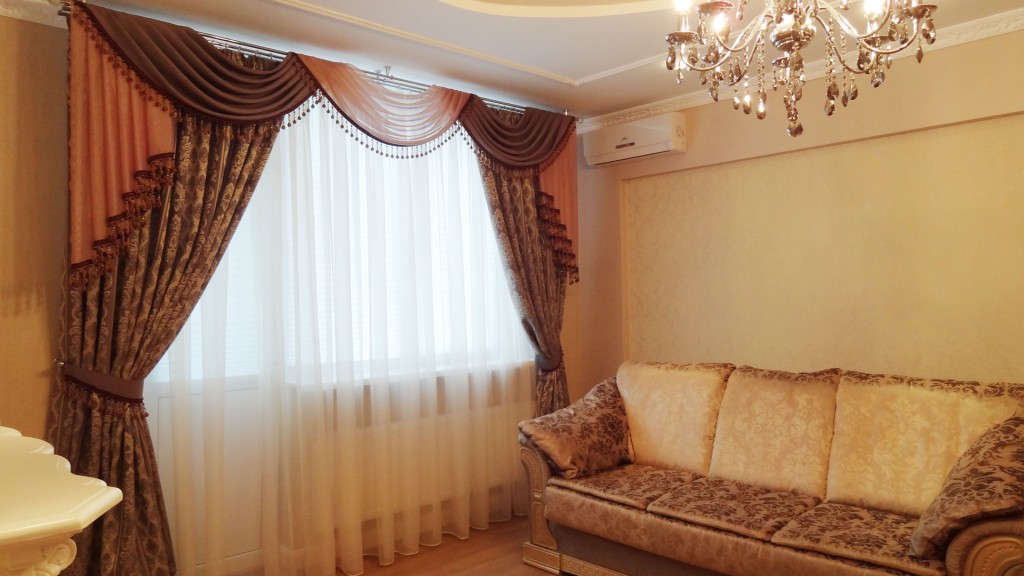
Useful advice! For floor-length curtains, choose practical materials that are easy to wash and do not require ironing.
When you want to somehow update the window decoration with original decor with draperies, overhead details or a lambrequin, it is important to take into account the KS. It is calculated additionally, but the shape of the pattern is taken as a basis. For asymmetric models, rely on the greatest length of the pattern shape.
How to calculate the width of a curtain: recommendations from experts
You can come up with any style with unimaginable decor, but everything is determined by the width of the roll of fabric. Often, markings are printed at the edge of the roll, small defects and creases are possible. It is necessary to inspect the cut when buying - the buyer has the right to refuse a piece with defects even with a punched receipt.
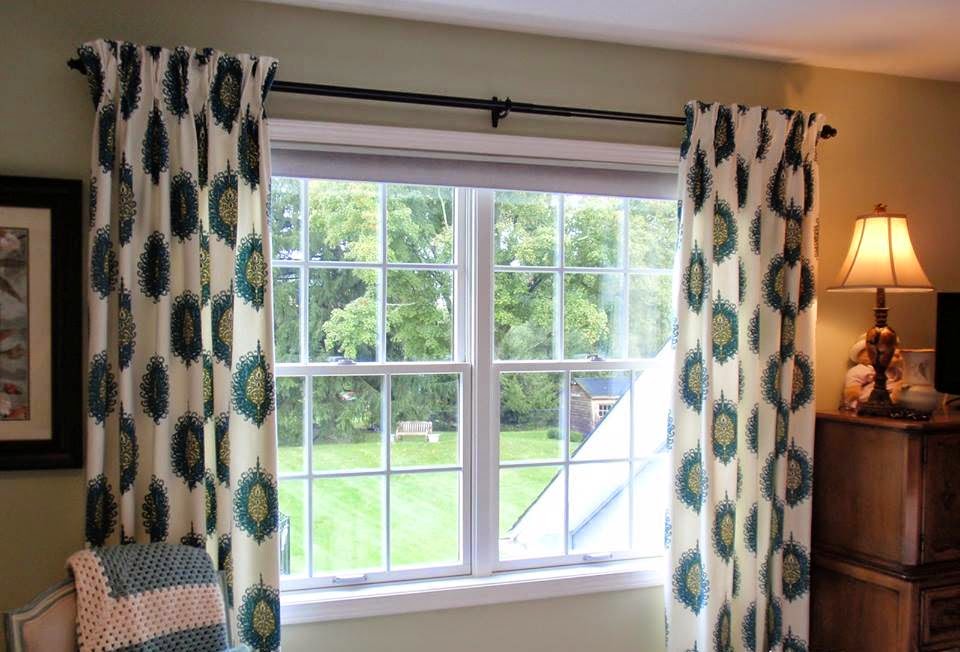
Important! To avoid errors, before making calculations, we mentally unroll the roll from the floor to the ceiling or along the baguette rod, taking into account multiple folds.
When calculating using any formula, all conditions must be met, for example, the height of the curtain must not exceed the format of the roll (minus the edge). Your measurements are multiplied by the assembly coefficient and adjusted for the length of the cornice. This is the basis for calculations if the direction of the roll is along the cornice.
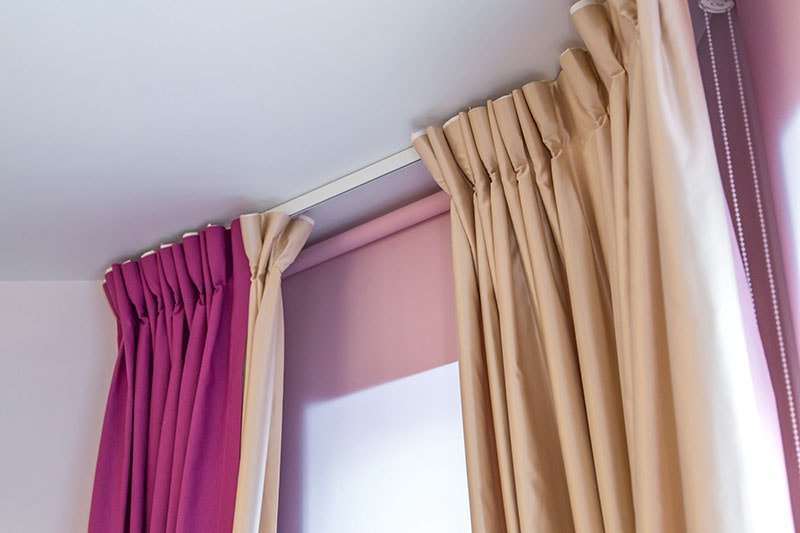
If the curtain is calculated by height - from the floor to the baguette, precise calculations from the edge of the round rod to the floor itself are important, the style (length of the curtains and the method of fastening) is taken into account, as well as an allowance for hemming.
In some cases, the roll is not wide or long enough. Then several panels of the same material are carefully sewn together, hiding the seams in soft folds and draperies. The consumption is multiplied by the number of pieces of fabric. If the curtain and drape have a pattern, it must match exactly - this is an additional expense. There is also a standard assembly coefficient for different types of fabric:
- thin veil and curtain with a small pattern – KS 2;
- curtain fabric – KS 1.7;
- organza without a pattern for marquise gathering – KS 3.
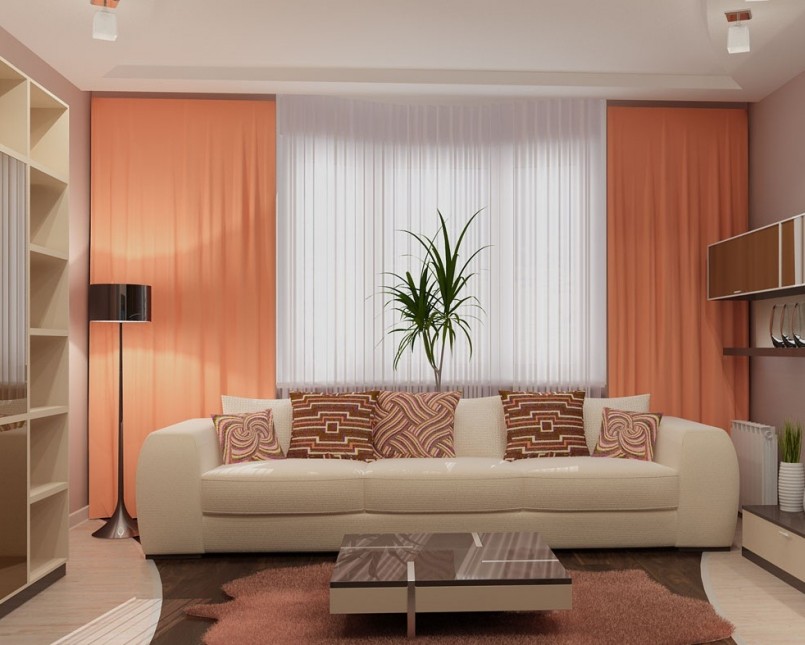
Practical examples of calculations
- The footage by the width of the canvas is the length of the cornice multiplied by the KS (assembly coefficient).
- The footage by height is the height from the cornice to the floor (another length) plus allowance for hemming (the bottom separately, the top depends on the method of fastening), we add an adjustment for the pattern to match.
- Fabrics with a large pattern, periodically repeated along the roll, are placed so that it is fully visible at the top or bottom of the curtain, depending on the design. When calculating, we add up the length of the pattern rapport plus additional expense for the full height.
- Sometimes the fabric sticks out when forming folds, add another 3-5 cm for free sagging.
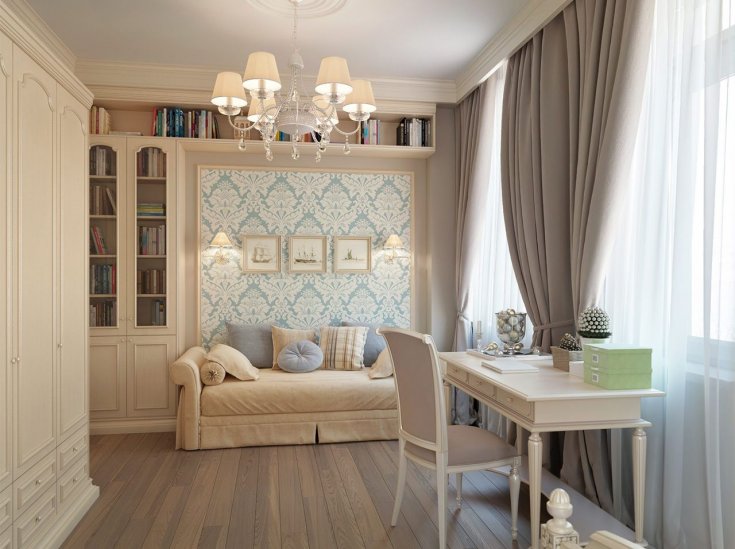
An example of calculations for a standard window, with a 2-meter cornice at a height of 2.6 m, if the fastening is on a tape for assembly, tulle without a pattern:
- by width: 2m x 2 (KS) = 4 m;
- by length: 2.6 m + 0.15 m + 0.1 m = 2.85 m;
- patterned curtains with a repeat of 0.5 m, we count 2.6 m + 0.15 m + 0.1 m + 0.5 m = 3.35 m.
Attention! Add a hem allowance to the resulting length (the top is longer, depending on the type of fastening, the bottom - 2 cm is enough.)
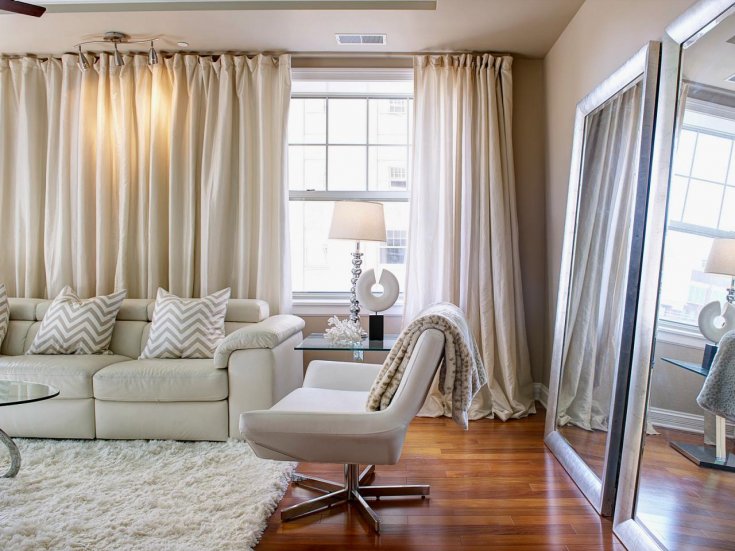
To avoid any doubts when buying curtains with a large pattern, it is better to take about a meter in reserve. If a piece of fabric remains unclaimed, it is better to sew sofa cushions from it - excellent decor for the interior. It is much worse to hang short curtains, lower the cornice or come up with frills, wide contrasting stripes and other design elements, hiding the "undersize".


